-
 Bitcoin
Bitcoin $88,575.4133
1.33% -
 Ethereum
Ethereum $1,623.1195
-0.94% -
 Tether USDt
Tether USDt $1.0000
0.01% -
 XRP
XRP $2.1040
-0.96% -
 BNB
BNB $605.9509
0.36% -
 Solana
Solana $139.9862
-0.01% -
 USDC
USDC $1.0000
0.00% -
 Dogecoin
Dogecoin $0.1637
1.09% -
 TRON
TRON $0.2482
1.98% -
 Cardano
Cardano $0.6392
-1.18% -
 Chainlink
Chainlink $13.3059
-1.43% -
 UNUS SED LEO
UNUS SED LEO $9.0739
-4.00% -
 Avalanche
Avalanche $20.1274
-2.31% -
 Stellar
Stellar $0.2484
-4.08% -
 Sui
Sui $2.3116
2.05% -
 Shiba Inu
Shiba Inu $0.0...01252
-0.73% -
 Toncoin
Toncoin $2.9119
-3.20% -
 Hedera
Hedera $0.1725
0.04% -
 Bitcoin Cash
Bitcoin Cash $346.0750
1.19% -
 Hyperliquid
Hyperliquid $18.2428
0.88% -
 Litecoin
Litecoin $79.3117
-2.01% -
 Polkadot
Polkadot $3.7471
-4.36% -
 Dai
Dai $1.0000
0.00% -
 Bitget Token
Bitget Token $4.4341
-0.56% -
 Ethena USDe
Ethena USDe $0.9992
0.00% -
 Pi
Pi $0.6353
0.33% -
 Monero
Monero $216.8188
0.48% -
 Pepe
Pepe $0.0...08105
3.48% -
 Uniswap
Uniswap $5.3764
-1.05% -
 OKB
OKB $51.0901
0.18%
What currency is COMP? What does COMP coin mean?
COMP, the governance token of the Compound protocol, allows holders to participate in decision-making, use it as collateral, and earn rewards for supporting the ecosystem.
Oct 01, 2024 at 07:30 am
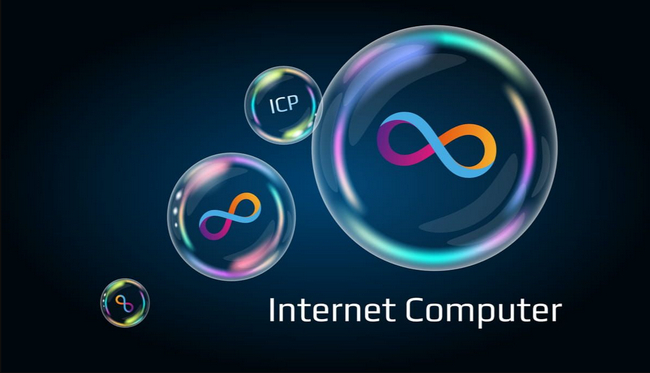
1. What is COMP Currency?
COMP is the native token of the Compound protocol, a decentralized lending platform built on the Ethereum blockchain. It is a governance token that grants holders voting rights on protocol proposals and enables participation in the decentralized governance of Compound.
2. What is COMP Coin?
COMP coin is the ERC-20 token representing the COMP currency. It is used for the following purposes:
- Governance: COMP holders can vote on protocol proposals, including interest rate adjustments, collateral types, and protocol upgrades.
- Collateral: COMP can be used as collateral on the Compound protocol to borrow assets without selling them.
- Rewards: COMP is distributed to suppliers and borrowers on the Compound protocol as a reward for participating in the ecosystem.
3. Features of COMP Currency:
- Decentralization: COMP is governed by the community of token holders, ensuring transparency and fair decision-making.
- Scarcity: The maximum issuance supply of COMP is limited to 10 million tokens, which helps maintain its value.
- Utility: COMP provides users with governance rights, collateralization options, and rewards within the Compound ecosystem.
Disclaimer:info@kdj.com
The information provided is not trading advice. kdj.com does not assume any responsibility for any investments made based on the information provided in this article. Cryptocurrencies are highly volatile and it is highly recommended that you invest with caution after thorough research!
If you believe that the content used on this website infringes your copyright, please contact us immediately (info@kdj.com) and we will delete it promptly.
- British drug gang makes its own crypto to launch money
- 2025-04-22 18:50:12
- US Bitcoin ETFs Record Their Largest Daily Inflows Since January
- 2025-04-22 18:50:12
- Days before his 2025 inauguration, President Donald Trump announced the launch of his meme coin, a form of cryptocurrency.
- 2025-04-22 18:45:12
- XRP Community Figures Highlight Final Deadlines for SEC Decisions on Multiple Spot-Based XRP ETF Applications
- 2025-04-22 18:45:12
- Is It Time to Throw $1,000 Into Raydium Right Now? RAY Price Outlook
- 2025-04-22 18:40:12
- Mantra Burns 300 Million OM Tokens, Equivalent to 16.5% of the Total Supply
- 2025-04-22 18:40:12
Related knowledge
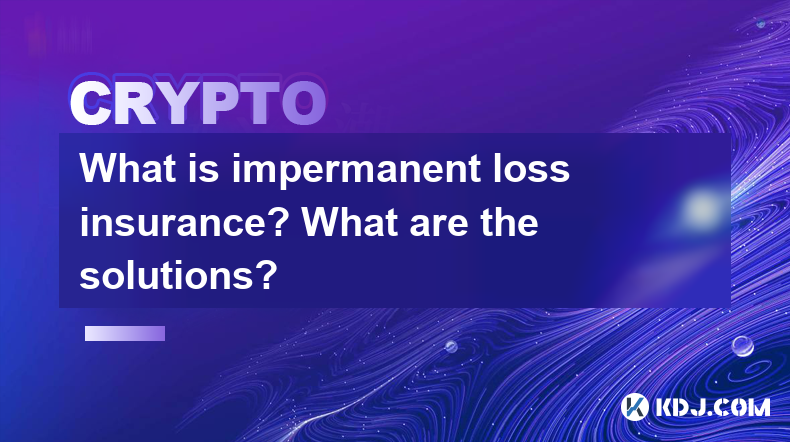
What is impermanent loss insurance? What are the solutions?
Apr 12,2025 at 01:14am
What is Impermanent Loss Insurance? What are the Solutions? Impermanent loss is a significant concern for liquidity providers in decentralized finance (DeFi) platforms. It occurs when the price of tokens in a liquidity pool changes compared to when they were deposited, leading to a potential loss if the provider decides to withdraw their liquidity. To m...
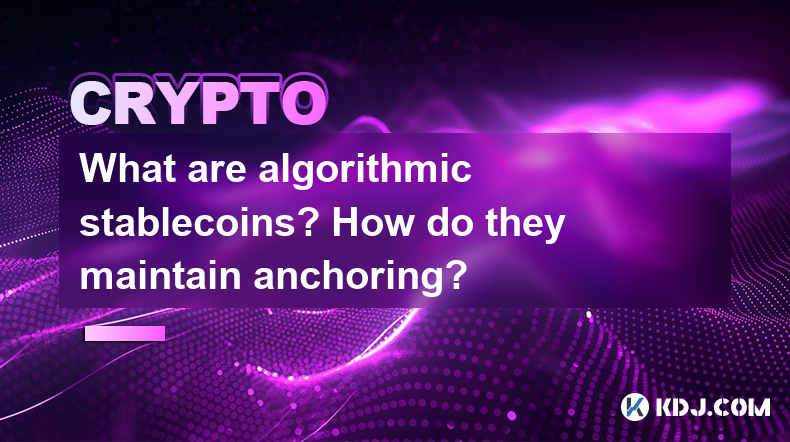
What are algorithmic stablecoins? How do they maintain anchoring?
Apr 12,2025 at 11:35am
Algorithmic stablecoins represent a fascinating and innovative segment within the cryptocurrency ecosystem. These digital assets are designed to maintain a stable value, typically pegged to a fiat currency like the US dollar, through the use of algorithms rather than traditional collateral. This approach distinguishes them from other types of stablecoin...
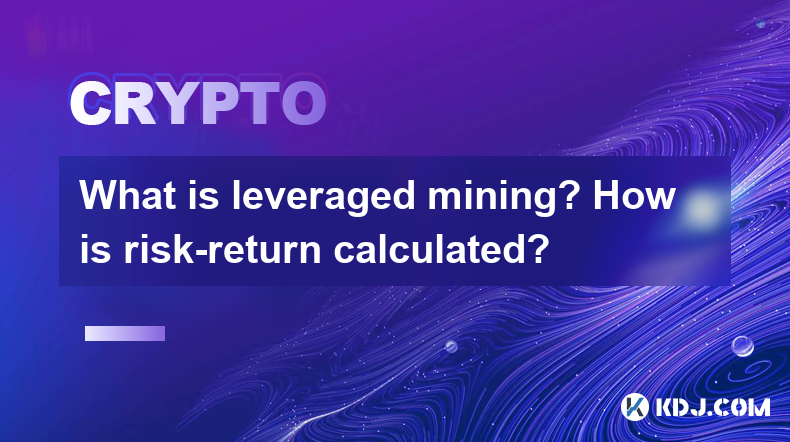
What is leveraged mining? How is risk-return calculated?
Apr 11,2025 at 04:07pm
What is Leveraged Mining? How is Risk-Return Calculated? Leveraged mining is a strategy used in the cryptocurrency space where miners borrow funds to increase their mining capacity and potential returns. This approach can amplify both profits and losses, making it a high-risk, high-reward endeavor. Understanding how to calculate the risk and return asso...
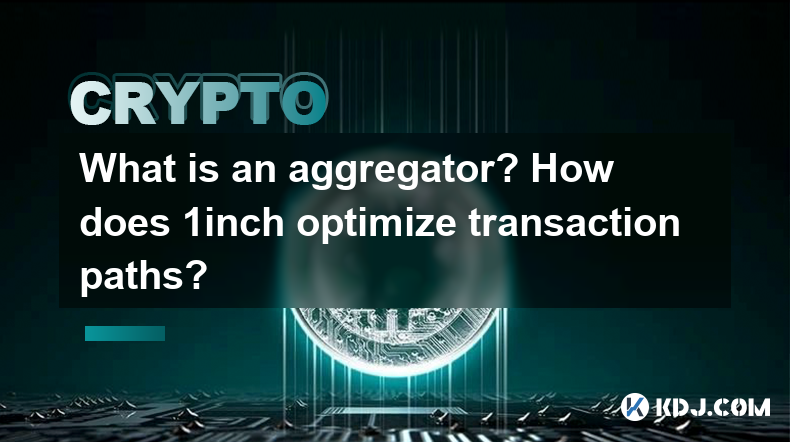
What is an aggregator? How does 1inch optimize transaction paths?
Apr 12,2025 at 05:00pm
An aggregator in the cryptocurrency space is a tool that compiles and compares data from multiple decentralized exchanges (DEXs) to find the best possible trading routes and prices for users. Aggregators are essential for traders looking to optimize their transactions, as they can automatically search through various liquidity sources to ensure the most...
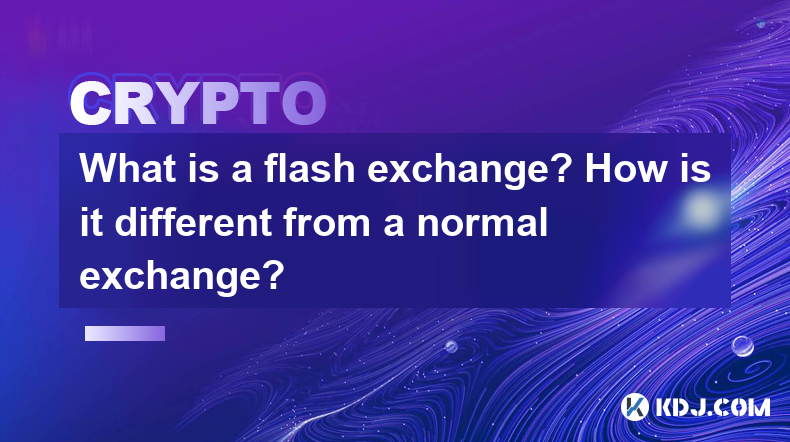
What is a flash exchange? How is it different from a normal exchange?
Apr 16,2025 at 03:43pm
A flash exchange, also known as a flash swap, is a relatively new concept within the cryptocurrency space that has gained significant attention due to its innovative approach to trading. Unlike traditional exchanges, flash exchanges leverage the power of decentralized finance (DeFi) protocols to enable instant, collateral-free trades. In this article, w...
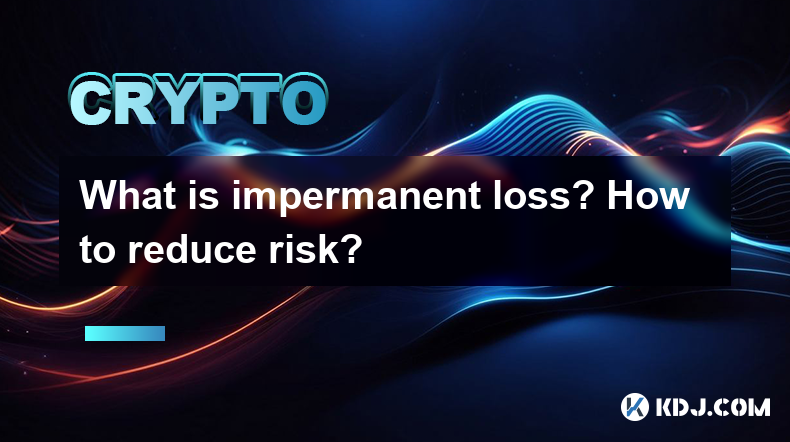
What is impermanent loss? How to reduce risk?
Apr 16,2025 at 11:14pm
What is Impermanent Loss? How to Reduce Risk? Impermanent loss is a term that frequently surfaces in the world of decentralized finance (DeFi), particularly when discussing liquidity provision on automated market makers (AMMs) like Uniswap or SushiSwap. Understanding this concept is crucial for anyone looking to engage in liquidity provision, as it dire...

What is impermanent loss insurance? What are the solutions?
Apr 12,2025 at 01:14am
What is Impermanent Loss Insurance? What are the Solutions? Impermanent loss is a significant concern for liquidity providers in decentralized finance (DeFi) platforms. It occurs when the price of tokens in a liquidity pool changes compared to when they were deposited, leading to a potential loss if the provider decides to withdraw their liquidity. To m...

What are algorithmic stablecoins? How do they maintain anchoring?
Apr 12,2025 at 11:35am
Algorithmic stablecoins represent a fascinating and innovative segment within the cryptocurrency ecosystem. These digital assets are designed to maintain a stable value, typically pegged to a fiat currency like the US dollar, through the use of algorithms rather than traditional collateral. This approach distinguishes them from other types of stablecoin...

What is leveraged mining? How is risk-return calculated?
Apr 11,2025 at 04:07pm
What is Leveraged Mining? How is Risk-Return Calculated? Leveraged mining is a strategy used in the cryptocurrency space where miners borrow funds to increase their mining capacity and potential returns. This approach can amplify both profits and losses, making it a high-risk, high-reward endeavor. Understanding how to calculate the risk and return asso...

What is an aggregator? How does 1inch optimize transaction paths?
Apr 12,2025 at 05:00pm
An aggregator in the cryptocurrency space is a tool that compiles and compares data from multiple decentralized exchanges (DEXs) to find the best possible trading routes and prices for users. Aggregators are essential for traders looking to optimize their transactions, as they can automatically search through various liquidity sources to ensure the most...

What is a flash exchange? How is it different from a normal exchange?
Apr 16,2025 at 03:43pm
A flash exchange, also known as a flash swap, is a relatively new concept within the cryptocurrency space that has gained significant attention due to its innovative approach to trading. Unlike traditional exchanges, flash exchanges leverage the power of decentralized finance (DeFi) protocols to enable instant, collateral-free trades. In this article, w...

What is impermanent loss? How to reduce risk?
Apr 16,2025 at 11:14pm
What is Impermanent Loss? How to Reduce Risk? Impermanent loss is a term that frequently surfaces in the world of decentralized finance (DeFi), particularly when discussing liquidity provision on automated market makers (AMMs) like Uniswap or SushiSwap. Understanding this concept is crucial for anyone looking to engage in liquidity provision, as it dire...
See all articles























































































